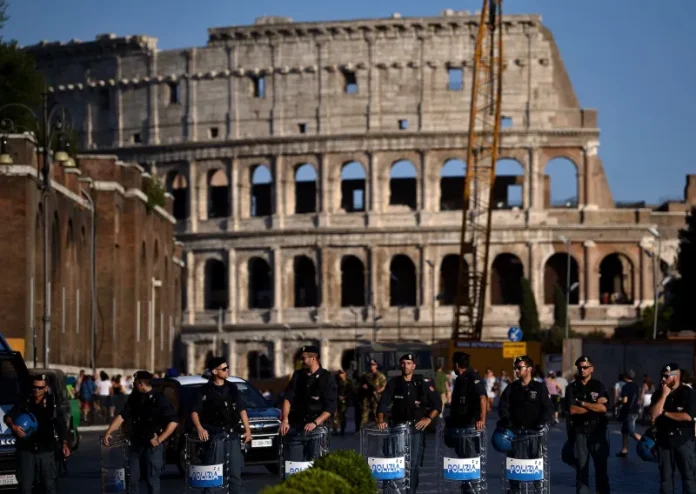Italy has raised its terrorism alert level to the highest possible, following a terrorist attack in Moscow that killed about 140 people, Euractiv reports.
Following France’s lead, Italy this week raised its alert level following Saturday’s attack on a concert hall near Moscow, for which an Islamic State group claimed responsibility.
The National Committee for Public Security, chaired by Interior Minister Matteo Piantedosi, emphasised the need to strengthen anti-terrorism measures across Italy during the Easter holidays. The package of additional anti-terrorism measures will include increased surveillance at popular tourist destinations and “sensitive sites”.
Deputy Prime Minister and Foreign Minister Antonio Tajani said on Sunday that Italy “faces no specific danger”. The minister assured the public that the country’s security and law enforcement agencies remain vigilant to prevent any potential threats.
In an interview with Euractiv Italy, Claudio Bertolotti, researcher at the Institute for International Policy Studies (ISPI) and director of Start Insight, emphasised that Italy’s experience in the fight against terrorism is often overlooked.
Since 2014, he said, there have been 10 terrorist attacks or episodes of jihadist violence in Italy. However, these incidents, mostly failed attempts, have received little media coverage, contributing to a false sense of immunity from terrorism among the population.
Bertolotti also stated that in quantitative terms, Italy faces fewer potential threats than countries such as France, Germany, the UK and Belgium, which may be more affected due to higher levels of radicalisation in their Muslim communities.
The Start Insight director also believes that the situation in Italy could change over time, citing the significant number of Italian young people who responded to the Islamic State’s call to join the fight in Syria in June 2014.
Bertolotti disputes the view that terror alert levels in Europe have risen since the Moscow massacre, suggesting that the threat remains constant. He says there is a definite pattern that major terrorist incidents are often followed by a series of secondary, often unsuccessful attacks fuelled by media attention and copycat perpetrators, usually lasting about eight days.
The number of attempted terrorist attacks in Europe, which typically fluctuates between 10 and 15 per year, has not decreased, the expert said, although the effectiveness and media attention has decreased compared to previous years. This trend has led Islamic State to claim only those attacks that have been successful.
Referring to his organisation’s report on terrorism, Bertolotti noted that an interesting aspect has emerged in recent years, especially in France: there has been an increase in the number of terrorists who carry out attacks within days or weeks of arriving in the country, and most of them are from Italy.
